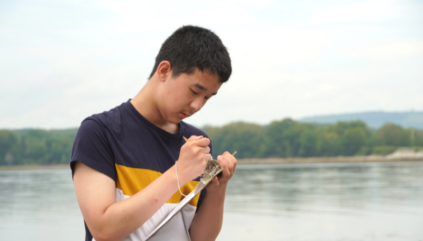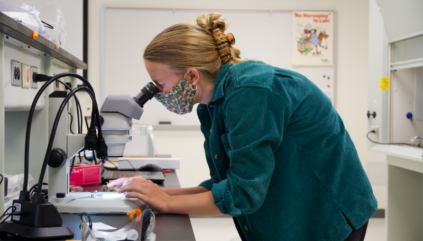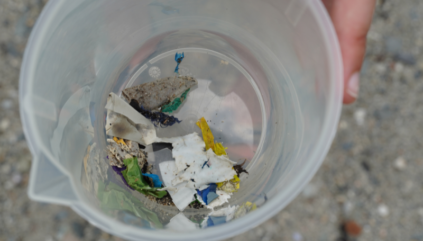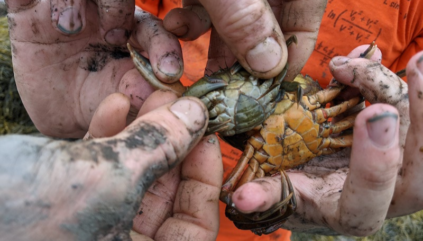INT 188: STEM Exploration Course
Summer 2024 Program Details
UMaine (Orono campus)
Choose between sections specialized in climate change or engineering and engage in our hands on summer research program.
This course will run from July 22–Aug. 9. Course sections meet Monday through Thursday from 9 a.m.–2 p.m.
A symposium will be held on August 9, where students will share their research projects with the community. Students are expected to be present for all classes and the symposium.
This course is offered tuition-free for qualified high school students. Students who pay to attend high school in Maine will be charged a reduced Early College rate of $145/credit. This includes out-of-state and international students.
How do I sign up?
Step 1
Apply through the ExplorEC portal (it’s easy, we promise!)
Step 2
Complete this form to help us match your experience in INT 188 to your interests (required step before you are enrolled).
Step 3
If you have questions please contact us.


What is a STEM Research and Career Exploration Course?
Introduction to Integrated Science and Career Exploration (INT 188) is a three-credit course that involves field and laboratory based data collection, data analysis, and lecture in the Science, Technology, Engineering, and Mathematics (STEM) disciplines, including participation in group-based directed research projects and career planning exercises, with guest lectures and daily activities centered on contemporary environmental issues and STEM innovations, and culminating in a student project based research symposium at the end of the course. This three-week course includes 40+ hours of course and lab work during which students undertake a guided research project working with peers and career planning.
- Students apply basic science, math, and problem-solving skills to investigate a research question that is relevant and engaging.
- They practice research skills such as study design, graphing, data analysis, critical thinking, and communication, and then apply them in an open-ended investigation that they conduct with peers.
Science Research
Participants must select their preference when applying.
Climate Science- Orono
The Climate Science team will make field observations, lab measurements, and data analysis to investigate climate change using a systems approach. It will explore connections between the atmosphere, hydrosphere, cryosphere, and surface evolution of the landscape to uncover the role each plays in climate change and how these different systems are impacted. Possible student projects include measuring water properties and greenhouse gases in local ecosystems, documenting evidence of past sea level changes and glacier retreat, and using models to study atmospheric trends.
Engineering- Orono
Through a series of engaging experiments and projects, students will explore the fundamental ideas in engineering. Students will delve into topics related to kinematics such as trajectories and motion, and explore fluid dynamics principles such as Bernoulli’s principle, viscosity, pressures, flows, etc. with hands-on experiments and projects. Possible projects include building water rockets to explore principles of thrust and fluid dynamics, constructing mini hydroelectric generators to learn about energy conversion and flow rates, designing and testing paper airplanes to understand trajectory and aerodynamics, and creating models of systems to study pressure and fluid behavior.


Career Exploration
Career planning is a big part of this course. You’ll have the opportunity to explore different careers through completing virtual interviews with multiple professionals in STEM fields. You’ll have the opportunity to learn what skills are required in these STEM professions.
Participating in this course will help you become familiar with the points of entry for various careers, enabling you to identify and map a college plan focused on science, technology, engineering or mathematics.
Connecting with businesses and industries can have many benefits, including opportunities for mentoring, internships and employment.

